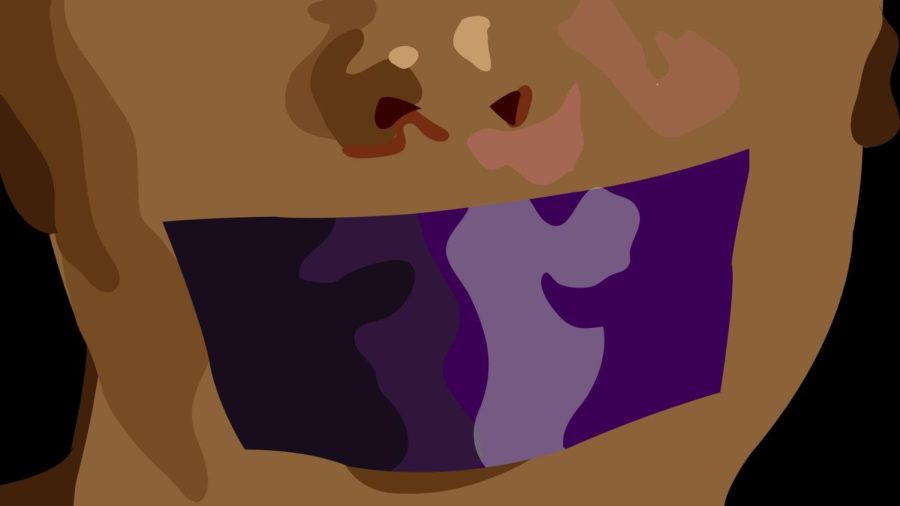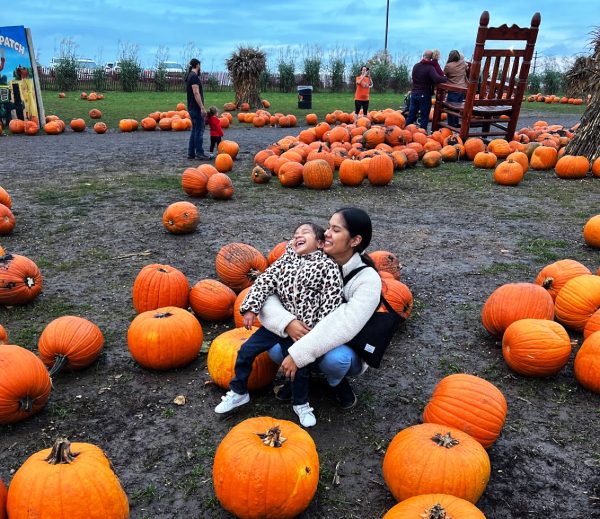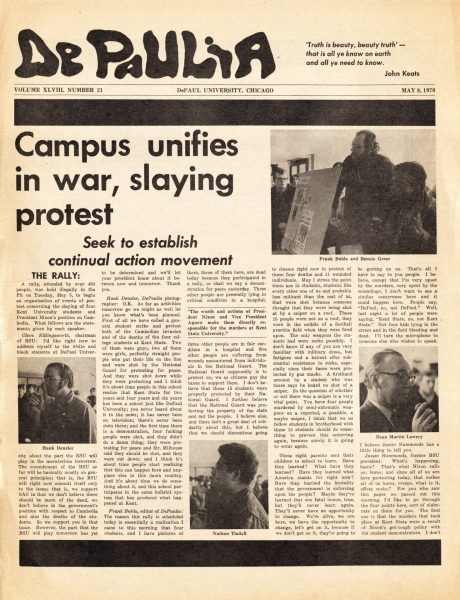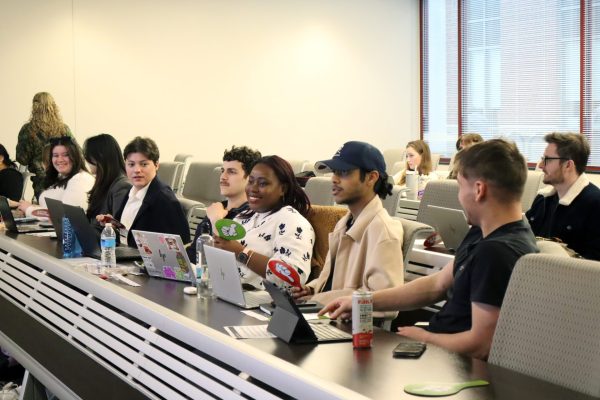DePaul hosts sexual assault awareness panel for students with disabilities
DePaul’s Office of Health Promotion and Wellness (HPW) hosted their first panel in a month-long series raising awareness for victims of sexual assault who are often overlooked for Sexual Assault Awareness month on Thursday over Zoom. The first panel featured four speakers discussing how disabled people may experience sexual violence and their different needs when dealing with trauma.
As the panels continues this month, specialists will continue to discuss sexual violence in the disabled community, men and the LGBTQ+ community over the next few weeks.
The event host, Sara Heidbreder, a sexual and relationship violence prevention specialist at DePaul, said she created the panel to discuss sexual violence in communities that aren’t categorized as cisgender females.
“I want people to know there are more [survivors] than we think,” she said. “Generally, people think survivors are mostly female and cisgender, but we wanted to be very intentional about addressing the unique needs or experiences of a community we don’t really talk about often.”
The panel was meant to be a safe space for open discussion for those who don’t have access to resources or counseling services.
“I wanted to create a safe space for those people who may not get resources usually because it’s a little bit more of a struggle for those people who may have a disability to seek support because people may not understand or are more judgemental,” she said. “It is an unfortunate truth that in the Chicago area, the resources specifically for people with a disability [are limited] since it is such a small community.”
The panel for students with disabilities featured four speakers: Joy Messinger, a racial and gender justice philanthropist, Sondra Malling, an ASL bilingual psychotherapist, Susan Nash from DePaul’s Center for Students with Disabilities and Judith Legorreta-Hernandez, a mental health clinician from DePaul’s counseling services.
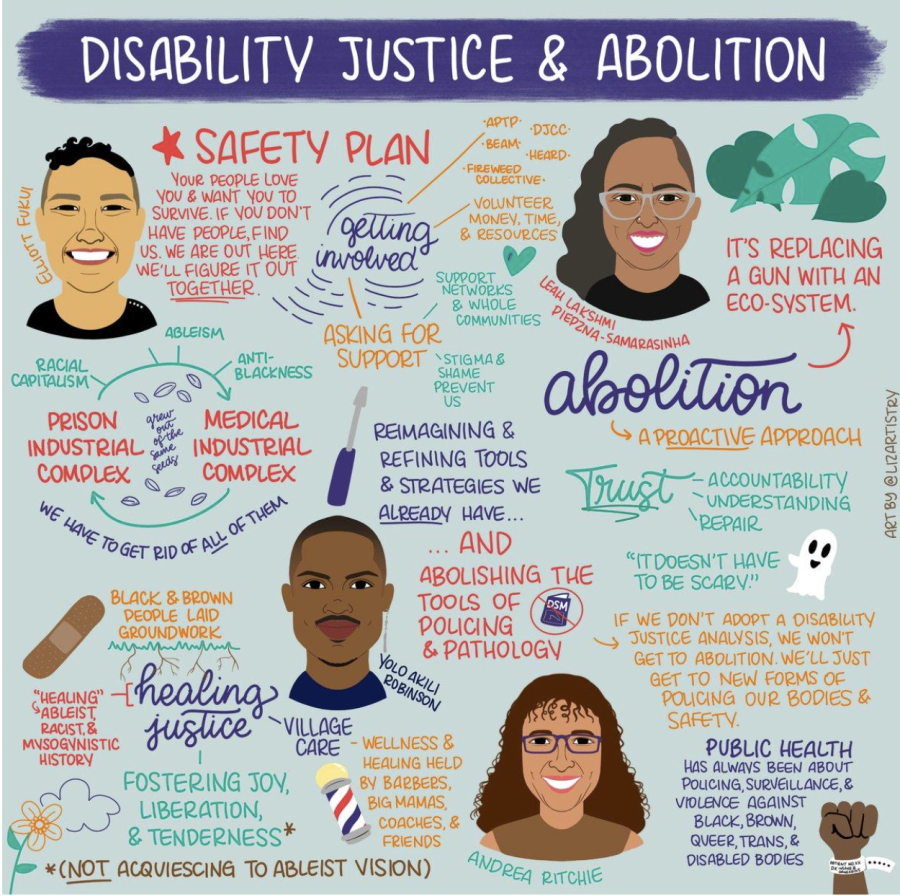
Addressing a series of questions related to sexual assault awareness for students in the disability community, the speakers discussed topics surrounding ableism, disability justice, marginalization in the disability community and trauma informed treatment for survivors.
Messinger, who described herself as a disabled survivor of sexual assault, said disabled people are three times more likely than their abled peers to experience sexual violence. She also points out disabilities can be physical or psychological and impact individuals in many different ways.
“If we think about disability in a broad way, [there are] people with physical impairments, people who belong to sensory minorities, people with emotional disabilities, cognitive challenges, mental health challenges and chronic and severe illness,” she said at the event. “There are many ways that people are disabled by the world so there are many ways that we must work with people who are disabled in order to support their individual challenges or impairments.”
During the discussion, Heidbreder highlighted how the disability community may be impacted by sexual violence and how sexual assault surivors from different communities outside the female, cisgender norm are less likely to be believed or receive justice when surviving sexual assault.
“Whether someone is believed or not, whether someone is criminalized or not is going to look different [depending on the specific community],” Messinger said.
Complications for survivors of sexual assault in the diasability community include difficulties with the reporting process.
“The Title IX process makes it very difficult,” Messinger said. “The reporting process is a hugely neurotypical process that requires you to be able to remember something in a very concise and linear way in order to be able to describe what happened to you, and asks a lot even of neurotypical people who have a high level of emotional intelligence.”
The panel addressed how disability culture impacts survivors of sexual assault. Malling pointed out that abled people are often unaware of the challenges people in the disabled community face, therefore their experiences are sometimes overlooked.
“The very concept that disability culture exists is something that folks just don’t know and we can’t understand people’s intersectionality if we don’t understand that their disabilities are more than just their physical experience,” Malling said. “It is the fabric of their lives, values and how they express themselves.”
Heidbreder created the panel hoping to address issues regarding sexual assault in the disabled community, but understands the topics of discussion cannot provide a clear answer and instead provides a safe space for students to talk about sexual assault and the impact it has in different communities.
“I am not aiming to get a clear answer or result, but it is more for opening up the conversations and for us to start thinking about the bigger future, so maybe we can make a bigger change,” Heidbreder said.
The following two panels in the three week series will be discussing sexual assault violence in men and the LGBTQ+ community.


